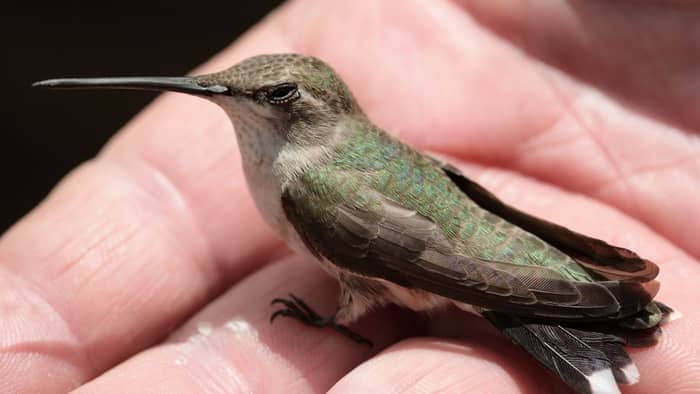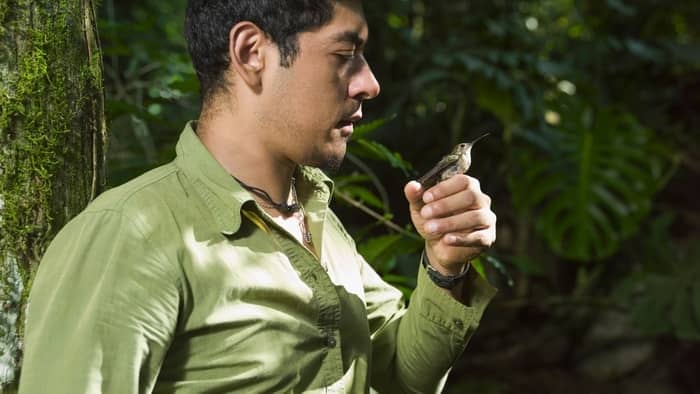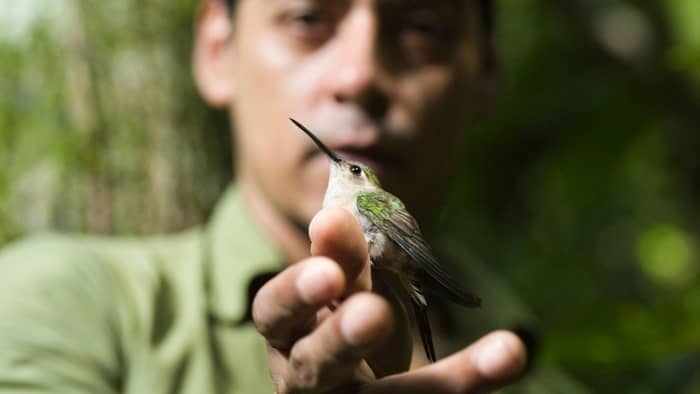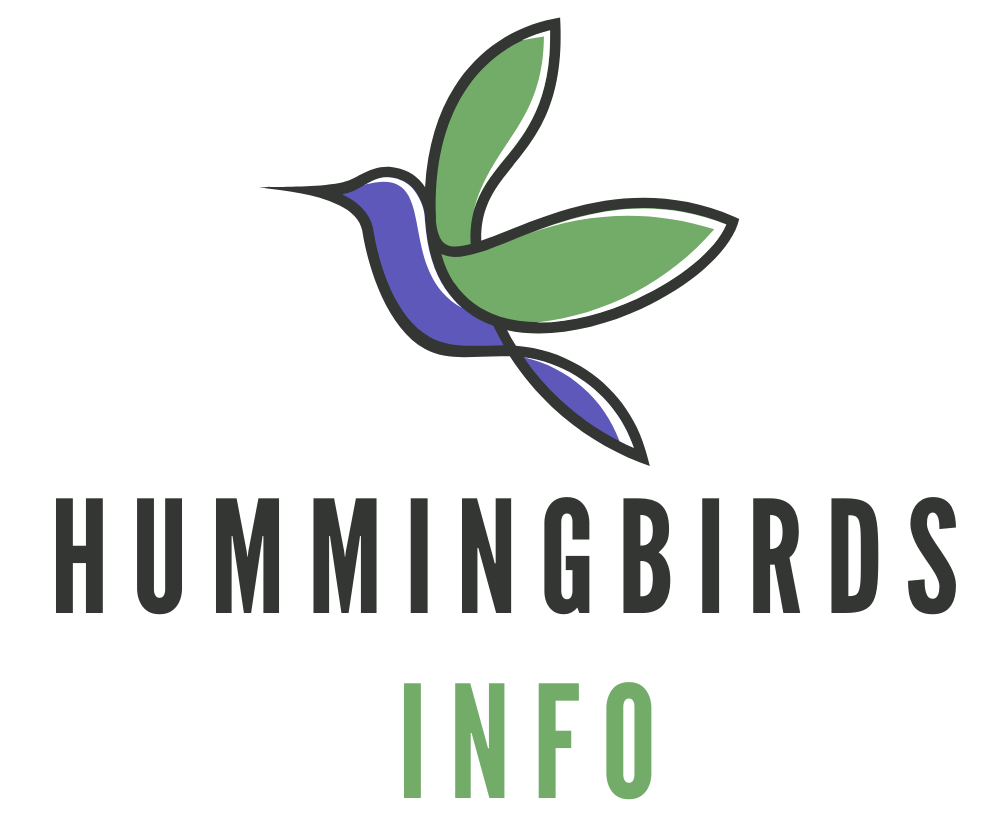Ever wondered if hummingbirds are poisonous? Just like every other outdoor animal, hummingbirds are also wild animals. Hummingbirds may look sweet, charming, and all. But we really need to know if they can pose any risk to us.
Hummingbirds are little colorful radiant birds. However, in some cases, small animals that are poisonous or venomous tend to appear colorful just to deter or warn away predators. But is this the case for hummingbirds? Are hummingbirds poisonous to human beings or our environments? Let’s look into this.
So, this guide attempts to enlighten us on what we need to know about hummingbirds being harmful or not to human beings. We would also look into more related aspects such as diseases hummingbirds may carry or transfer to humans if there are any.
Are Hummingbirds Dangerous To Humans?
We are aware of the hummingbird’s aggressive and territorial character. They show this character in defense of any reliable food source or feeding territory. The female mother hummingbirds also exhibit a defense character when she is protecting her offspring whenever they feel threatened.
But in all these shows of territorial and aggressive behavior, a hummingbird does not pose any physical dangers to humans.

Are Hummingbirds Poisonous?
Hummingbirds are not poisonous or venomous creatures. Therefore, it’s safe to handle them or get close to them. However, there are serious laws protecting these birds. You should be aware that it is illegal to trap, hold, or control these charming birds without a permit.
Do Hummingbirds Carry Diseases?
Just like every other wild animal, hummingbirds are wild creatures that live in different environments. Hence, they are susceptible to different diseases and can carry diseases and transfer them to other hummingbirds.
You getting close or having close contact with hummingbirds does not always cause the transfer of diseases. Most diseases of hummingbird carry may not be transmittable to humans. But in some cases, it is possible for a few of these hummingbird diseases to be passed to humans.
Diseases Hummingbird Tend To Transmit To Humans
The most common disease that birds generally or hummingbirds can transfer to humans is Salmonellosis (Salmonella). Hence, care needs to be taken when coming close to these birds. Once you notice any hummingbird showing symptoms of Salmonellosis, you should take serious precautions to prevent human transmission.
Salmonella is one common bacterium that usually hits most birds hard including hummingbirds. It is spread when the food or water source the hummingbird is feeding on gets contaminated with these bacteria.

The symptom you may notice hummingbirds show when it is infected with Salmonella includes diarrhea, lethargy, and ruffled feathers. The bacteria Salmonella affects the intestinal system of the hummingbird. This causes hummingbirds to be unable to absorb or assimilate nutrients from the food they feed on.
This disease is commonly spread during the winter months when there is food scarcity for these birds. Therefore, many hummingbirds including other wild birds may visit your feeding station in search of food. An infected bird that feeds on a feeding spot can contaminate the feeder and cause other birds feeding on that feeder to get infected with the disease.
This disease is easily and rapidly spread by feeding stations that are overcrowded and are not cleaned frequently and properly. This is why you should always maintain a clean feeding station if you always have hummingbirds around your vicinity.
When a bird is infected with Salmonella diseases, it takes about 1 to 3 days for the bird to die.
Is Touching A Hummingbird A Safe Thing To Do?
Mere touching a hummingbird is very safe. Also, it is legally safe as there are no laws that prevent you from touching them. The main thing the law frowns against is holding hummingbirds captive or having them as a pet.
However, when you notice that the bird is showing signs of distress, you should be careful and take precautions when coming close or touching the bird. You should put on some gloves and wear a face mask if it’s necessary you touch the hummingbird that is showing signs of distress.
So, it’s safe to touch any hummingbird that you can see looks well. You can pet them, practice hand feeding with them, nurse them if necessary, and so on. Doing these are all allowed by the law so you’re safe from any legal charges.
Does Hummingbird Have A Beak Poison?
The beak of the hummingbird isn’t poisonous. However, these birds can use their beak to attack and stab their fellow birds in the throat. This usually happens during a territorial dispute.

Because some hummingbirds may not like to share feeders with others, they may begin to attack each other and go as far as beak stabbing. Also, the female hummingbird mother can exhibit this beak stabbing character if she sees any threat close to her nest.
However, hummingbirds may not harm or attack humans. They will mainly give you a warning sign to back off their territory if they see you’ve crossed the line. So, if hummingbird signals to you to move away from their territory, you should do so quickly.
Taking Precautions To Prevent Hummingbird From Diseases
We cannot but emphasize how important it is to regularly maintain a clean feeding station. If your feeding station is clean, there will be fewer chances of different diseases spreading.
Additionally, ensure you refill your hummingbird feeders at appropriate times. When the temperature is very high, you need to refill or replace your feeders once or twice a week. Moderate temperature can allow feeders to be refilled 3 to 4 times a week.
Temperature encourages fermentation of nectar and it reduces the freshness of the nectar solution as time goes by. So, ensure you replace feeders as the temperature changes.
Closing Remark Regarding If Hummingbirds Are Poisonous
We have seen that hummingbirds are not poisonous creatures. However, they may pass diseases to humans, but this is not in all cases.
The only disease hummingbird is known to transmit to humans is known as Salmonella. It spreads more around crowded feeding stations. But the chances of these diseases surviving around your feeders is greatly reduced if you can maintain a very clean feeding station.
